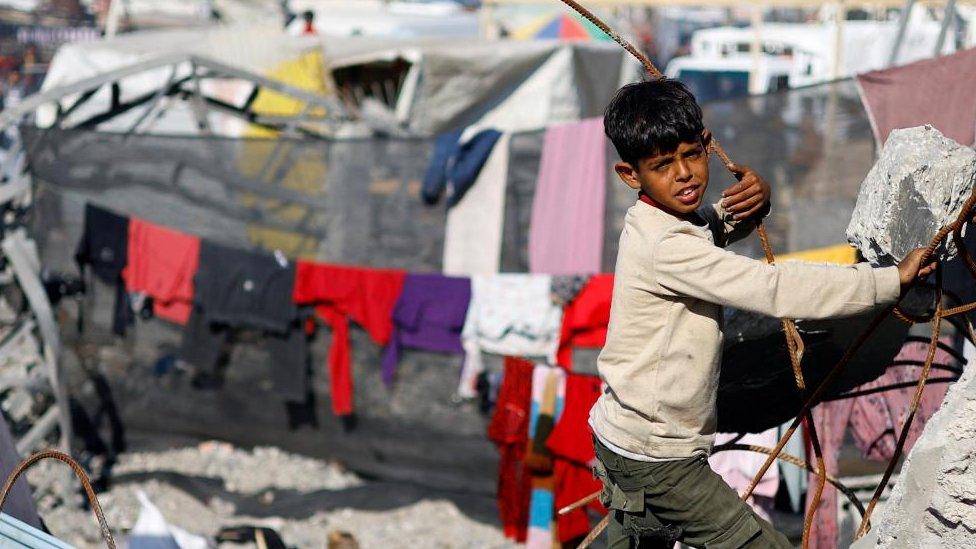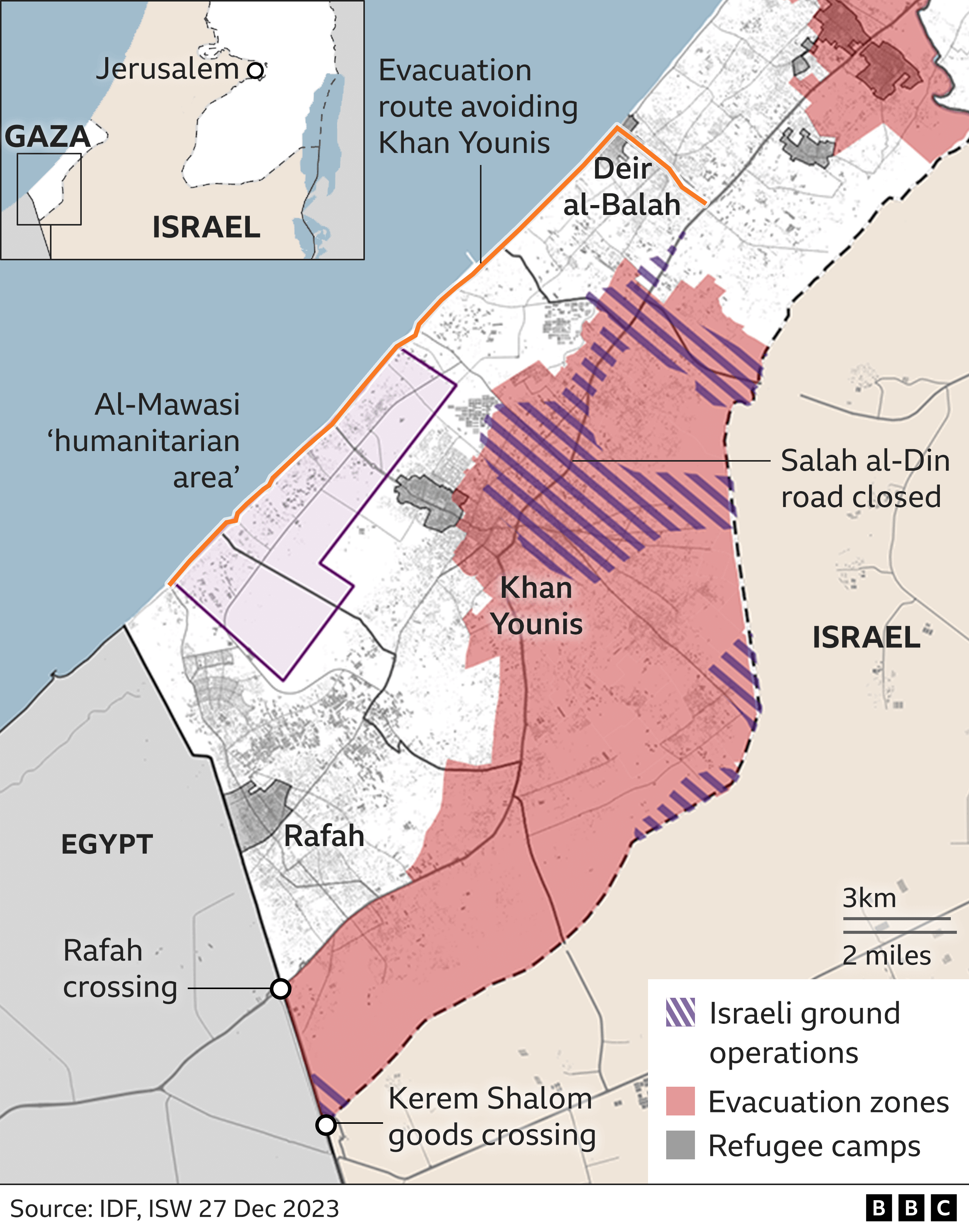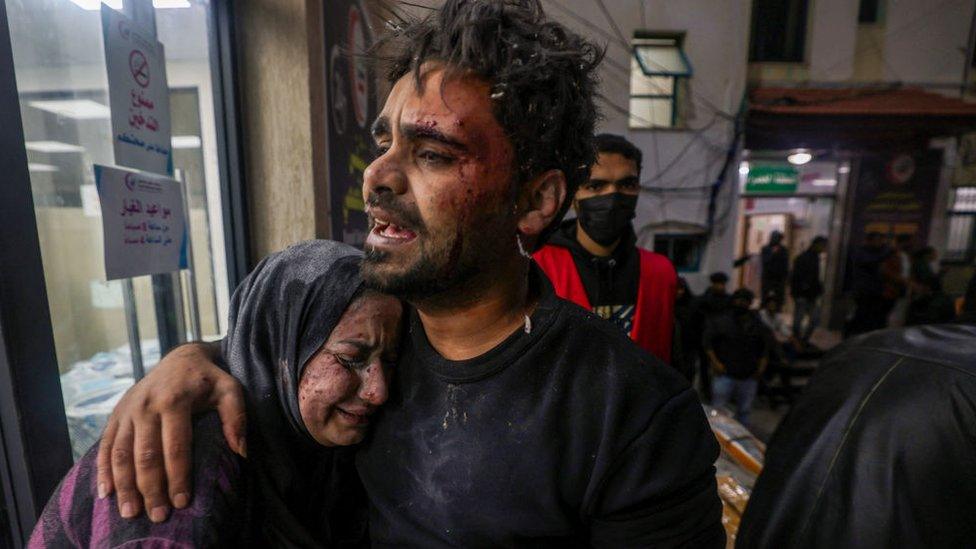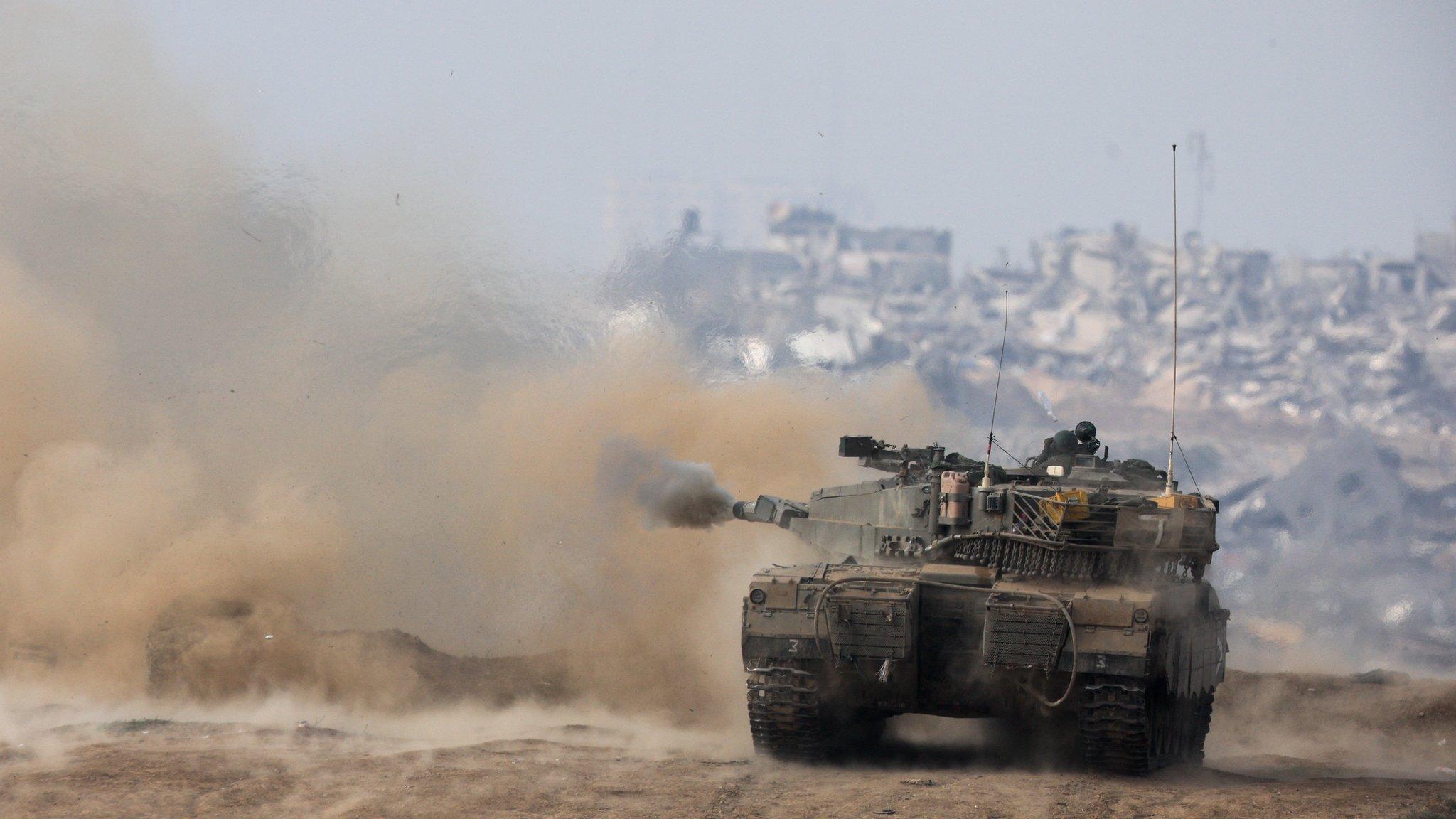Israel-Gaza war: Displaced Gazans 'living in the open', UN says
- Published

Many displaced Gazans are living "in the open, in the parks," Juliette Touma of the UN relief agency for Palestinian refugees, UNRWA, has told the BBC.
According to the UN's humanitarian office (OCHA), at least 100,000 people have fled to Rafah - which borders Egypt in Gaza's south - in recent days.
UNRWA's Ms Touma said the UN was being authorised to bring in "limited assistance".
But Gaza's humanitarian needs, she said, "have massively grown".
She said UNRWA continued to face "restrictions to access areas in the Gaza Strip where we should access".
Israel has said it is not limiting aid and the problem is with its distribution.
It launched its offensive in Gaza after Hamas's deadly 7 October attack, in which 1,200 people were killed and a further 240 taken hostage.
More than 21,672 people have been killed in Gaza since that date, according to the Hamas-run health ministry. It says a further 56,165 Palestinians have been injured.
Access to humanitarian aid in the 41km (25 miles) long and 10km wide enclave has been tightly controlled since the start of the war.
At the start of its military campaign, Israeli forces focused on Gaza's north. But more recently, they have been pounding Khan Younis in southern Gaza, which they see as a stronghold for Hamas.
Israeli Prime Minister Benjamin Netanyahu said in a TV address on Saturday evening that Israel was "fighting on all fronts".
He echoed remarks by the chief of general staff, saying the war would go on "for many months", until Israel achieved "the release of all our hostages and the dismantlement of Hamas".

Speaking from Rafah, UNRWA's Gaza director Tom White told the BBC there were "well over a million people" seeking safety in the city.
Mr White said that for "hundreds of thousands of people" seeking safety in Rafah, "there are no spots left" in shelters - which included UNRWA schools and other municipal facilities.
He echoed comments made by Ms Touma, explaining that "hundreds and hundreds of thousands of people are now sleeping in the open under flimsy pieces of plastic" as a result of the overcrowding.
In its latest report, external, UNRWA said up to 1.9m people have been displaced across the Gaza Strip since the start of the war.
According to OCHA, the most recent wave of displacement into Rafah is due to intense fighting in Khan Younis and other parts of the territory.
Residents in Khan Younis have reported intense gun battles between Israeli troops and Hamas fighters.
Elsewhere in Gaza on Saturday, fighting was also reported in the Nuseirat refugee camp, Maghazi and in al-Bureij.
In a statement on X,, external the Israel Defense Forces (IDF) Arabic-language spokesman warned that the main north-south road in Gaza, the Salah al-Din, was a "battlefield" and "dangerous to reach".
Meanwhile, a third UN body - the World Health Organization (WHO) - has again warned of a spike in the spread of infectious diseases across Gaza's displaced community.
WHO chief Dr Tedros Adhanom Ghebreyesus said there had been a rise in the number of diseases across Gaza between mid-October and mid-December.
He said that across UN shelters there had been some 136,400 cases of diarrhoea, 55,400 cases of lice and scabies, and 126 cases of meningitis.
Related topics
- Published29 December 2023

- Published27 December 2023
